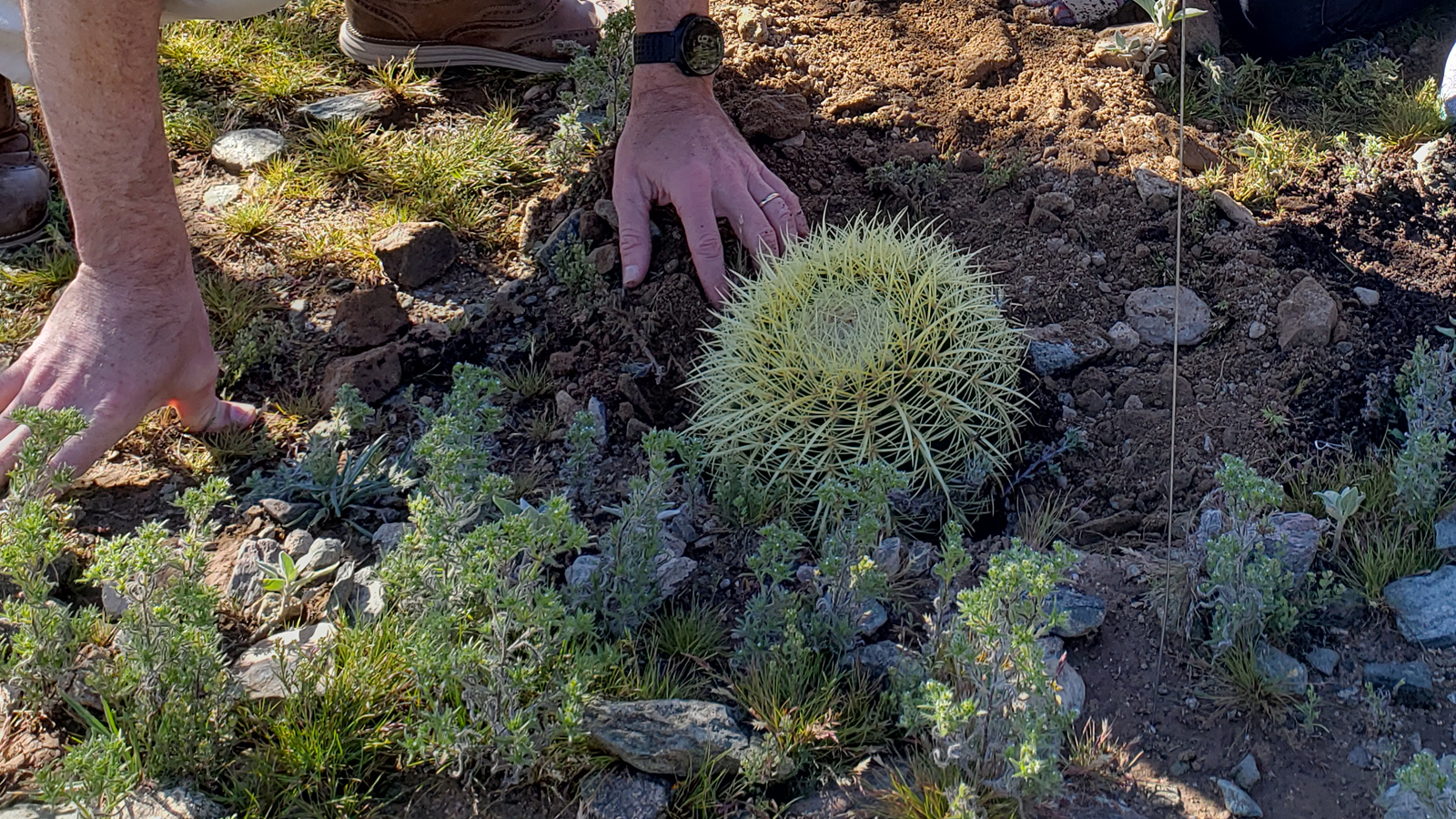Restoring the natural landscape in Phoenix

The Penny Howe Trail, an educational, barrier-free trail in Phoenix’s North Mountain Park, is abutted by interpretive signs that describe the various native plant species. However, many of the plants featured on these signs had died out due to their natural lifecycle. Restoring these plants lets valuable education continue along the trail.
Microsoft saw the opportunity to help restore the natural landscape surrounding the Penny Howe Trail. As part of GreenBiz 19 , an annual event for sustainable business leaders, Microsoft worked with American Forests and AZSA to co-sponsor a volunteer event with conference attendees to plant cacti and other native vegetation in the park.

Improving the community with native vegetation
North Mountain Park provides an array of trails and two of the best summit climbs in Phoenix. “Restoring local landscapes like this one will raise awareness about the significant environmental, societal, and economic benefits of restoring native vegetation while also engaging community stakeholders in improving their community,” said Jad Daley, President and CEO of American Forests.
As Ashley Camhi, Founder of the Arizona Sustainability Alliance (AZSA) said, “We know that sustainability is the core of continued improvement in the lives of Arizonans and the protection of our natural resources.”

Coordinating with sustainability leaders
The planting event helped replenish much of the vegetation, including saguaro, ocotillo, teddy bear cholla, artichoke agave, and globe mallow. This collaborative effort will improve recreation opportunities in the Phoenix area and provide food and shelter for local wildlife, like jackrabbits, roadrunners, and coyotes. Other benefits of planting vegetation include cooling of cities, production of clean air and filtration of water, and mitigation of climate change via capture of carbon. Cacti are particularly valuable in carbon sequestration efforts, using carbon to build plant matter and turning it into calcium carbonate in the soil, rather than releasing it into the environment.
The planting event allowed conference attendees and others in the community to learn more about the work being done to protect and restore urban outdoor space and to leave a lasting impact on the Phoenix landscape.
According to Aubrey Coffey-Urban, AZSA Program Director, “This was a great way to solidify AZSA’s relationship with Microsoft and American Forests, who we continue to partner with on other projects.”
“We know that sustainability is the core of continued improvement in the lives of Arizonans and the protection of our natural resources.”
—Ashley Camhi, Founder, Arizona Sustainability Alliance (AZSA)

